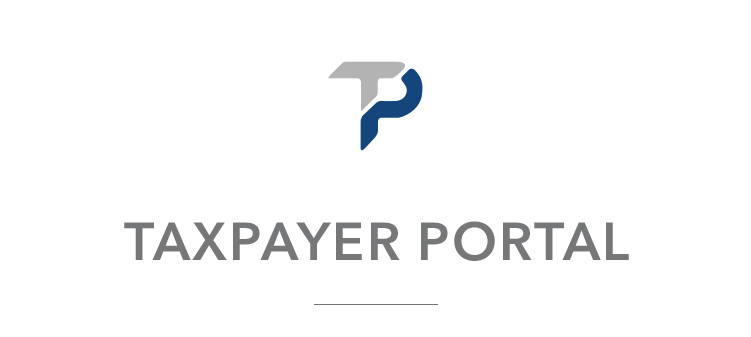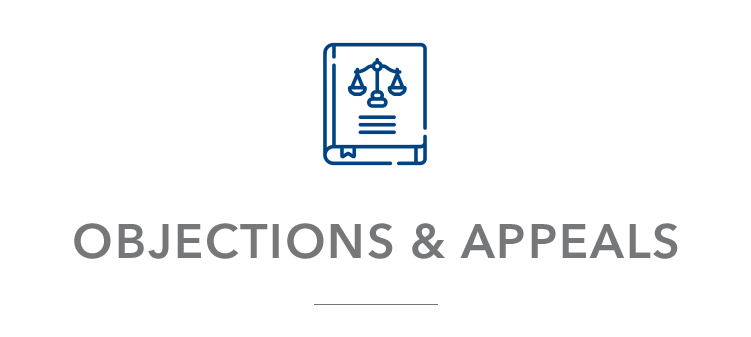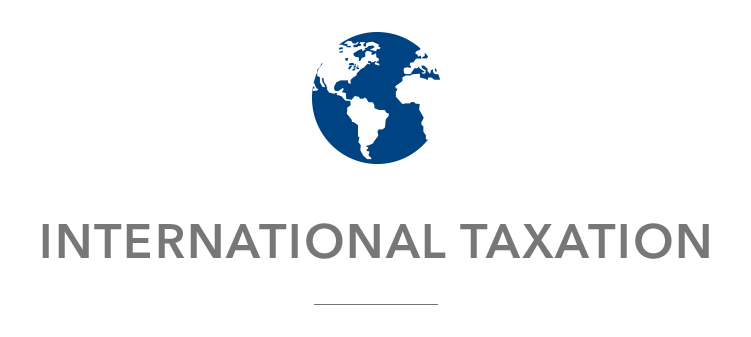Penalty & Interest
- Penalty for late submission of annual return of income
Every person who is required to submit a return and who fails to do so, shall be liable to pay a penalty of Rs 2,000 per month until the time the return is submitted, up to a maximum of Rs 20,000. However, where the person is a small enterprise having an annual turnover not exceeding 10 million rupees or an individual who is not in business, the maximum penalty is Rs 5,000.
- Penalty for late payment of tax
A penalty of 5 % of the amount of tax is payable in case of late payment. However, where the person is a small enterprise having an annual turnover not exceeding 10 million rupees or an individual who is not in business, the rate of penalty is 2 %.
- Interest for late payment of tax
In case of late payment, enter 0.5% of the balance of tax payable at section 29 for each month or part of the month during which the tax remains unpaid after the due date.
Solidarity Levy (SL) - Abolished as from 01 July 2023
-
An individual whose leviable income exceeds Rs 3 million is liable to a solidarity levy which is calculated at the rate of 25% of the leviable income in excess of Rs 3 million.
-
Leviable income is the chargeable income of the individual and dividends paid to him by a resident company and a co-operative society registered under the Co-operative Act 2016.
-
With effect from income year 2019-2020, a person has to declare as part of his leviable income his share of dividend concerning to a societe in which he is an associate.
-
However leviable income does not include any lump sum by way of commutation of pension or by way of death gratuity or as consolidated compensation for death or injury, and paid –
-
by virtue of any enactment;
-
from a superannuation fund; and
-
under a personal pension scheme approved by the Director-General
-
Solidarity Levy (SL) on Emoluments
Employers should henceforth calculate cumulative PAYE for Solidarity Levy (SL) where, in a month, the cumulative chargeable of the employee, excluding any lump sum payable by way of commutation of pension or of death gratuity, exceeds SLET*.
The rate applicable is:
- 25% of the cumulative excess; or
- 10% of the cumulative emoluments (excluding any lump sum payable by way of commutation of pension or of death gratuity),
whichever is the lower.
The PAYE for SL, for the current month, is then calculated by deducting, from the cumulative PAYE for SL, the PAYE for SL withheld in previous months of the income year. The PAYE for SL to be deducted from the emoluments of an employee in a month shall, in any case, not exceed 15% of the emoluments for the month.
*SLET - is the sum of the amount of solidarity levy exemption threshold, and is calculated by multiplying Rs 230,769 (3,000,000 ÷ 13) by the number of months from July to the current month.
Employee has submitted EDF
Solidarity Levy (SL) has to be withheld from the emoluments of the employee on a cumulative basis at the rate:
- 25% of the cumulative excess; or
- 10% of the cumulative emoluments (excluding any lump sum payable by way of commutation of pension or of death gratuity),
whichever is the lower.
The PAYE for SL, for the current month, is then calculated by deducting, from the cumulative PAYE for SL, the PAYE for SL withheld in previous months of the income year. The PAYE for SL to be deducted from the emoluments of an employee in a month shall, in any case, not exceed 15% of the emoluments for the month.
The first Rs 3 million of an employee’s leviable income is not liable to solidarity levy. For monthly SL calculation, employees are allowed a Solidarity Levy Exemption Threshold (SLET) of Rs 230,769 (Rs 3,000,000/13). In December, in view of the end of year bonus, twice the monthly amount of SLET should be allowed.
No EDF submitted
Where an employee has not submitted an EDF and his emoluments for any month exceed Rs 230,769, the employer should deduct Solidarity Levy at the rate of 25 % of the amount in excess of Rs 230,769. However maximum deduction is limited to 10 % of the emoluments for the current month.
However, the PAYE for SL to be deducted from the emoluments of an employee in a month shall, in any case, not exceed 15% of the emoluments for the month.
A person who, in respect of an income year, has not submitted an Employee Declaration Form, and derives emoluments,pension, annuity or similar payments not exceeding Rs 230,769 in a month, may request his employer/payer to withhold PAYE for SL at the rate of 10 % or 25 %; from such payments by completing the authorisation to deduct PAYE form which is available on MRA website.
Exempt Income
Income which are exempted from income tax are as follows :
-
Dividends
-
Paid by a company resident in Mauritius; or
-
Paid by a co-operative society registered under the Co-operative Societies Act.
-
-
Interest payable on -
-
a balance maintained in a bank holding a banking licence under the Banking Act 2004 by an individual who is not resident in Mauritius;
-
-
The deletion of item 3(b), the exemption provided under that item shall continue to apply until 30 June 2021 where the interest is payable on call and deposit accounts held with any bank under the Banking Act by a company issued, on or before 16 October 2017, with a Global Business Licence under the Financial Services Act.
-
Interest payable on
-
a savings or fixed deposit account held by an individual, a société or a succession with any bank or a non-bank deposit taking institution under the Banking Act;
-
-
Interest paid to a non-resident, not carrying on any business in Mauritius –
-
by a corporation holding a Global Business Licence under the Financial Services Act out of its foreign source income; or
-
by a bank holding a banking licence under the Banking Act insofar as the interest is paid out of gross income derived from its banking transactions with non-residents and corporations holding a Global Business Licence under the Financial Services Act.
-
-
Interest, rents, royalties, compensations and other amounts paid by a special purpose fund established under the Financial Services Act 2007 to a non-resident.
-
Royalty payable to a non-resident by a company out of its foreign source income.
-
Gains or profits derived from the sale of units, securities or debt obligations by a person.
-
The first Rs 2.5 million of the aggregate amount received -
-
as lump sum by way of commutation of pension or by way of death gratuity or as consolidated compensation for death or injury, and paid -
-
by virtue of any enactment;
-
from a superannuation fund; and
-
under a personal pension scheme approved by the Director-General;
-
-
as lump sum under the National Savings Fund Act;
-
by way of retiring allowance;
-
by way of severance allowance determined in accordance with the Labour Act; and
-
as compensation negotiated under section 42 of the Employment Rights Act, limited to the amount of severance allowance referred to in section 46(5)(i) and (ii) of that Act, on such conditions as may be prescribed.
-
-
Any transport allowance payable by an employer to an employee by virtue of the terms and conditions of service equivalent to -
-
the return bus fare between residence and place of work;
-
petrol allowance, commuted travelling allowance and travel grant payable by the Government of Mauritius and the local authority to their employees; or
-
the actual petrol or travelling allowance paid or 25% of the monthly basic salary up to a maximum of Rs 20,000 , whichever is the lesser, provided that the employee makes use of a private car registered in his own name for attending duty and for the performance of the duties of his office or employment.
-
-
Any rent allowance payable to a person appointed to an office in -
-
the Police Force;
-
the Fire Services;
-
the Forests Division of the Ministry of Agriculture and Natural Resources;
-
the Prisons and Industrial School Service;
-
the Ministry of Fisheries;
-
the Department of Civil Aviation; or
-
the Fire Unit of the Mauritius Marine Authority.
-
-
Passage benefits provided under a contract of employment not exceeding 6% of the basic salary.
-
Any retirement pension not exceeding the Reliefs, Deductions & Allowances payable to a citizen of Mauritius who is not resident in Mauritius.
-
Alimony paid to a previous spouse whose marriage has been dissolved by a court of competent jurisdiction or in respect of maintenance paid to the spouse in accordance with an order of a court.
-
An employee whose emoluments do not exceed Rs 30,000 per month is an exempt person and is not subject to tax deduction under the PAYE System.
For further information regarding exempt income, refer to Part II of the Second Schedule to the Income Tax Act

- E-Filing of Individual Tax Return
Due Date: 30 September*
Extended Delay: 15 October for taxpayers filing their returns electronically and effecting payment, if any, using ATM or mobile payment.
* Next working day if 30 September is a Sunday or Public Holiday
- Current Payment System(CPS)
In respect of CPS quarter Due date for submission of CPS Statement and payment of tax 1 Jul to 30 Sept 2 days excluding Saturdays and public holidays before the end of December 1 Oct to 31 Dec 31 March 1 Jan to 31 March 2 days, excluding Saturdays and public holidays, before the end of June
Reliefs, Deductions & Allowances
-
Only an individual who is resident in Mauritius during the income year ending 30 June 2025 is entitled to claim personal reliefs, deductions and allowances.
-
Where for the income year ending 30 June 2025, a person claims deduction for dependents, the spouse of that person is not entitled to claim any deduction for dependents.
-
Deduction for Dependents
Dependent(s) Amount of Deduction (Rs) 1 dependent 110,000 2 dependents 190,000 3 dependents 275,000 4 dependents or more dependents 355,000 -
An individual is not entitled to claim for the income year ending 30 June 2025 deduction for dependents :
-
if the net income and exempt income of his dependent exceeds 110,000 rupees;
-
if the net income and exempt income of his second dependent exceeds 80,000 rupees;
-
if the net income and exempt income of his third dependent exceeds 85,000 rupees;
-
if the net income and exempt income of his fourth dependent exceeds 80,000 rupees.
For the purpose of 3 above, in case the dependent in respect of whom a deduction has been claimed includes a bedridden next of kin, the net income and exempt income of that dependent shall exclude the benefits derived by the bedridden next of kin under the National Pensions Act.
The exemption of Rs 325,000 granted to a taxpayer in respect of self has been replaced by a tax rate of 0 percent applicable on the first Rs 390,000 of chargeable income.
“Dependent” means either a spouse, a bedridden next of kin under his care, a child under the age of 18 or a child over the age of 18 and who is pursuing full-time education or trainingor who cannot earn a living because of a physical or mental disability.
“Bedridden next of kin” , in respect of a person, means the bedridden spouse, father, mother, grandfather, grandmother, brother or sister of that person or of his spouse, provided the bedridden next of kin is -
-
eligible to the carer’s allowance payable under the National Pensions Act; and
-
under the care of that person.
-
-
“Child” means
-
an unmarried child, stepchild or adopted child of a person;
-
an unmarried child whose guardianship or custody is entrusted to the person by virtue of any other enactment or of an order of a court of competent jurisdiction;
-
an unmarried child placed in foster care of the person by virtue of an order of a court of competent jurisdiction.
-
-
“Retired person” means a person who attains the age of 60 at any time prior to 1 July 2024 and who, during the income year ending 30 June 2025, is not in receipt of any business income or emoluments exceeding Rs 50,000 other than retirement pension.
-
“Disabled person” means a person suffering from permanent disablement.
-
Additional deduction in respect of dependent child pursuing undergraduate or postgraduate course
-
Where a person has claimed an additional deduction and the dependent is a child pursuing a non-sponsored full-time undergraduate or postgraduate course at an institution recognised by the Tertiary Education Commission established under the Tertiary Education Commission Act or at a recognised tertiary educational institution , outside Mauritius, the person may claim an additional deduction in respect of that child pursuing tertiary education of Rs 500,000.
-
The additional deduction is not allowable :-
-
in respect of the same dependent for more than 6 years; and
-
where the tuition fees, excluding administration and student union fees, are less than Rs 34,800 for a child following an undergraduate course in Mauritius.
-
-
-
Interest Relief on secured housing loan
-
A person who has contracted a housing loan, which is secured by a mortgage or fixed charge on immoveable property and which is used exclusively for the purchase or construction of his house, may claim a relief in respect of the interest paid or profit charge paid on the loan (under the Islamic financing arrangement).
-
The relief to be claimed in the EDF is the amount of interest payable or profit charge payable in the income year ending 30 June 2025. In the case of a couple where neither spouse is a dependent spouse, the relief may be claimed by either spouse or at their option, divide the claim equally between them.
-
The loan must have been contracted from :-
-
a bank, a non-bank deposit taking institution, an insurance company, or the Sugar Industry Pension Fund;
-
the Development Bank of Mauritius by its employees; or
-
the Statutory Bodies Family Protection Fund by its members.
-
an Islamic Financing Arrangement.
-
-
The relief is not allowable where the person or his spouse :-
-
is, at the time the loan is contracted, already the owner of a residential building;
-
derives in the income year ending 30 June 2025, total income (net income plus interest and dividends received) exceeding Rs 4 million;
-
has benefited from any new housing scheme set up on or after 1 January 2011 by a prescribed competent authority.
-
-
-
Relief for Medical insurance premium or contribution
A person may claim relief for premium or contribution payable for himself or his dependents in respect of whom deduction for dependents has been claimed at section 3.1:-
-
on a medical or health insurance policy; or
-
to an approved provident fund which has its main object the provision for medical expenses.
The relief is limited to the amount of premium or contribution payable for the income year up to a maximum of :-
-
Rs 25,000 for self
-
Rs 25,000 for first dependent
-
Rs 20,000 for second dependent
-
Rs 20,000 for third dependent
-
Rs 20,000 for fourth dependent
No relief should be claimed where the premium or contribution is payable by the employer or under a combined medical and life insurance scheme.
-
-
-
Deduction for Solar Energy Investment Allowance
A person will be allowed to deduct the total amount invested in a solar energy unit during the income year. In the case of a couple where neither spouse is a dependent spouse, the relief may be claimed by either spouse or at their option, divide the claim equally between them.
-
Deduction for Household Employees
Where a person employs one or more household employees, he may claim a deduction of the wages paid to the household employees up to a maximum of 30,000 rupees, from his net income, provided he has duly paid the contributions payable under The Social Contribution and Social Benefits Act and the National Savings Fund Act. In case of a couple, the deduction shall not, in the aggregate, exceed 30,000 rupees.
-
Rainwater Harvesting Investment Allowance
A person who has invested in a rainwater harvesting system during the income year ending 30 June 2025 may deduct the amount invested from his net income. In the case of a couple where neither spouse is a dependent spouse, the relief may be claimed by either spouse or at their option, divide the claim equally between them.
-
Deduction for fast charger investment allowance in respect of electric car
A person will be allowed to deduct the total investment in the acquisition of a fast charger for an electric car during the income year ending 30 June 2025.
-
Deduction for donation to charitable institutions
A person will be allowed to deduct from his net income the amount donated electronically to charitable institutions up to an amount of Rs 100,000 in the income year commencing on 1 July 2024.
-
Deduction for contribution made to approved personal pension schemes
A person will be allowed to deduct from his net income the amount contributed in respect of an individual pension scheme, an amount of up to Rs 50,000, in the income year commencing on 1 July 2024.
-
Angel Investor Allowance
Where an angel investor has, in an income year, invested a minimum of Rs100,000 to the seed capital of a qualifying start-up SME by way of acquisition of shares, he shall be entitled to a relief, by way of a deduction from his net income, of 50 per cent of the amount invested in that income year.
-
The total deduction shall not exceed Rs 500,000 in an income year.
-
Any unrelieved amount in an income year may be carried forward and deducted against the net income of the 2 succeeding years.
Angel investor means an individual who is aged 18 years or above and who is -
-
a citizen of Mauritius; or
-
the holder of a permanent residence permit or residence permit.
-
-
Deduction for the adoption of animals
Where an individual has adopted an animal from the Mauritius Society for Animal Welfare or an NGO approved by the Director-General, he shall be entitled to a relief by way of a deduction from his net income of an amount of Rs 10,000 per animal adopted. The total deduction shall not exceed Rs 30,000 in an income year.
-
Deduction for fee paying private schools
Where a dependent in respect of whom a deduction is claimed is attending a fee-paying private primary or secondary school registered under the Education Act, the person shall, in addition to the deduction he is entitled to, be eligible to an additional deduction of the amount of the fees paid or Rs 60,000, whichever is the lower.
-
Deduction for the employment of a carer
Where, in an income year, an individual employs one or more carers in respect of whom he has paid the contributions payable under the Social Contribution and Benefits Act 2021 and the National Savings Fund Act, he shall be entitled to deduct from his net income for that income year the wages paid to the carers or Rs 30,000, whichever is lower.

























